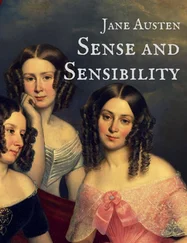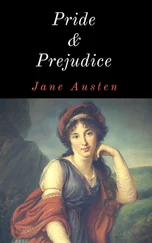John Ashton - English Caricature and Satire on Napoleon I. Volume I (of 2)
Здесь есть возможность читать онлайн «John Ashton - English Caricature and Satire on Napoleon I. Volume I (of 2)» — ознакомительный отрывок электронной книги совершенно бесплатно, а после прочтения отрывка купить полную версию. В некоторых случаях можно слушать аудио, скачать через торрент в формате fb2 и присутствует краткое содержание. Жанр: foreign_antique, foreign_prose, на английском языке. Описание произведения, (предисловие) а так же отзывы посетителей доступны на портале библиотеки ЛибКат.
- Название:English Caricature and Satire on Napoleon I. Volume I (of 2)
- Автор:
- Жанр:
- Год:неизвестен
- ISBN:нет данных
- Рейтинг книги:4 / 5. Голосов: 1
-
Избранное:Добавить в избранное
- Отзывы:
-
Ваша оценка:
- 80
- 1
- 2
- 3
- 4
- 5
English Caricature and Satire on Napoleon I. Volume I (of 2): краткое содержание, описание и аннотация
Предлагаем к чтению аннотацию, описание, краткое содержание или предисловие (зависит от того, что написал сам автор книги «English Caricature and Satire on Napoleon I. Volume I (of 2)»). Если вы не нашли необходимую информацию о книге — напишите в комментариях, мы постараемся отыскать её.
English Caricature and Satire on Napoleon I. Volume I (of 2) — читать онлайн ознакомительный отрывок
Ниже представлен текст книги, разбитый по страницам. Система сохранения места последней прочитанной страницы, позволяет с удобством читать онлайн бесплатно книгу «English Caricature and Satire on Napoleon I. Volume I (of 2)», без необходимости каждый раз заново искать на чём Вы остановились. Поставьте закладку, и сможете в любой момент перейти на страницу, на которой закончили чтение.
Интервал:
Закладка:
There is a vast amount of humour in ‘Anticipation, Ways and Means, or Buonaparte really taken’ (I. Cruikshank, August 13, 1798). This represents a booth at a country fair, where a Pierrot in tricolour costume (Fox), is showing to a lot of yokels a highly imaginative show canvas of Napoleon, with huge mouth and teeth, goggle eyes, two daggers, and immense boots and spurs. ‘To be seen here alive, the noted Bony Parte, from Egypt. ☞ An undoubted likeness.’ With tears streaming down his cheeks, he assures his audience that ‘he is certainly taken. I never was so pleased at any event in the whole course of my life.’
Pitt, who, suffering from gout, sits down and acts as trumpeter to the show, addresses the people thus: ‘Believe me, I do not mean to deceive you this time: he is really taken , and in this Booth at this present moment. Out with your pence good people – don’t be so shy – Tumble up Mr. Bull – the only booth in the fair! don’t be alarm’d – he is perfectly tame I assure you.’
The expedition to Egypt may be said to be the starting-point from which came the numerous caricatures of Napoleon. Before this, he had been known only by his victorious career in Italy, and had never come into active hostility with England; but now that we were to measure our strength with the Chief of the ‘Army of England,’ he became an important person, and, consequently, the caricaturists, ever feeling the public pulse, took him up, and found it to their benefit.
The occupation of Egypt by the French, if successful, would have led to their attacking our empire in India, and this was Napoleon’s design. Why the flotilla was ever allowed to go on its way unmolested, is hard to conceive; but it was so, and on May, 19, 1798, sailed out of Toulon 13 sail of the line, 7 frigates, 62 gunboats, and 400 transport vessels, having 20,000 troops and large quantities of military stores on board. There were also 121 men learned in different branches of science, who accompanied the expedition, and the whole was under the supreme command of Napoleon.
On June 11 they reached Malta, which surrendered without resistance, and then went on their way. Nelson followed them, and got to Malta, where he arrived on the 22nd, only to find that the French had left some days before, on which he sailed for Alexandria, getting there on June 28, but found no news of the French fleet; so, instead of waiting for them, he steered northward for Caramania, and then went to Sicily; whence, after refitting, he sailed again for Alexandria.
In the meantime the French, of course, took advantage of his (to them) lucky absence; and, on July 2, they disembarked the army, and took possession of Alexandria, but not without some loss on the side of the French; and the bodies of the soldiers thus slain were by Napoleon’s orders buried at the foot of Pompey’s Pillar, and their names were to be engraved on the Column.
And now, as it will be a frequent article of impeachment against Napoleon in this book, let us examine into the truth of his turning Mahometan, and see, first, what foundation it had in fact from the mouths of his own countrymen. De Bourrienne gives a proclamation made by Napoleon to his soldiers before their arrival in Egypt, from which I extract only those sentences bearing on this subject: —
Head Quarters, on board the ‘Orient.’ The 4th Messidor, Year VI. (June 22, 1798.)Soldiers, – The people amongst whom you are going to live, are Mahometans. The first article of their faith is this: ‘There is no God but God, and Mahomet is his Prophet.’ Do not contradict this. Behave to them as you have behaved to the Jews – to the Italians. Pay respect to their muftis, and their imams, as you did to the rabbis and the bishops. Extend to the ceremonies prescribed by the Alcoran, and to the Mosques, the same toleration which you showed to the synagogues, to the religion of Moses, and of Jesus Christ. The Roman legions protected all religions.
And again, the same author says: ‘On arriving at Alexandria, the General in Chief issued a proclamation to the people of Egypt, which, besides adverting to the insults and extortions experienced by French merchants from the Beys, contained the following passages: —
‘“People of Egypt, – You will be told that I am come to destroy your religion – do not believe it. Be assured that I come to restore your rights, to punish the usurpers, and that I respect more than the Mamelukes, God, his prophet, and the Alcoran. Tell them that all men are equal in the eye of God; wisdom, talents, and virtue make the only difference.
‘“Cadis, Sheiks, Imans, Scorbajis, tell the people that we are the friends of the true Mussulmans. Have we not destroyed the Pope, who says that war ought to be made upon Mussulmans? Have we not destroyed the Knights of Malta, because those bigots believed that God required them to raise their swords against the Mussulmans?”’
And again (still quoting from the same authority), in a proclamation to the people of Cairo, dated from Ghizeh, 4th Thermidor, year VI. (July 22, 1798): ‘Fear nothing for your families, your houses, or your property; and least of all, for the religion of the prophet, which I respect ( j’aime ).’
In another proclamation to the inhabitants of Cairo, according to ‘Buonapartiana,’ he is made to say: ‘Make known to the people that since the world has been a world, it was written, that having destroyed the enemies of Islamism , the Cross should be thrown down; I have come from the extreme confines of the West, to fulfil the task which has been imposed upon me. Shew your people that in the book of the Koran, in more than twenty passages, that what has happened has been predicted, and that what will happen is equally explained.’
In a French History 39 39 Histoire de Bonaparte, Premier Consul, Depuis sa Naissance, jusqu’à la Paix de Lunéville , Paris, chez Barba, 1801.
he is described as conversing with the Muftis and Imams in the Pyramid of Cheops. At p. 171 he says, ‘Honour to Allah!’ at p. 172, ‘Glory to Allah! There is no other God but God, Mahomet is his prophet, and I am one of his friends;’ and at p. 173, ‘Mufti, I thank you, the divine Koran is the joy of my soul, and the occupation of my eyes. I love the prophet; and I am reckoning, before long, to see and honour his tomb in the Holy City.’
It is not worth while to multiply instances. His policy led him to conciliate the people, and, probably, his utterances were rather more in accordance with their religious ideas than would have been conformable in the mouth of a zealous Christian. But to the English caricaturist and satirist they were bonnes bouches , and they twisted and distorted them to suit their purposes. It became almost an article of belief with the average Englishman, that Napoleon had embraced the Mahometan religion. Were there not his own proclamations to prove it? Gillray even depicted him as undergoing a ceremony of reception into the Mahometan religion, surrounded as he is by Muftis, one of whom puts a turban on his head, another sonorously reads from the Koran, whilst a third brandishes a fearful knife for circumcision.
CHAPTER X
After the entry into Alexandria, Napoleon, by several proclamations, imposed the strictest discipline upon his soldiers; and, although it is possible some irregularities may have occurred on the part of the troops, such scenes as were depicted by Cruikshank and Combe, one with his pencil, the other with his pen, were simply impossible.
He took the City by surprise,
For he was always very wise,
And with extreme amaze and dread,
To mosques the people gladly fled.
Regenerators yet annoy’d them,
For they o’ertook and soon destroy’d them;
And horrible indeed to tell,
Both men and women quickly fell;
Nay, even the infants at the breast!
How sad the cries of the distrest!
As trophies of this glorious fight,
The spears held up the babes to sight;
While this unparalleled ferocity
Was call’d amazing generosity .
Интервал:
Закладка:
Похожие книги на «English Caricature and Satire on Napoleon I. Volume I (of 2)»
Представляем Вашему вниманию похожие книги на «English Caricature and Satire on Napoleon I. Volume I (of 2)» списком для выбора. Мы отобрали схожую по названию и смыслу литературу в надежде предоставить читателям больше вариантов отыскать новые, интересные, ещё непрочитанные произведения.
Обсуждение, отзывы о книге «English Caricature and Satire on Napoleon I. Volume I (of 2)» и просто собственные мнения читателей. Оставьте ваши комментарии, напишите, что Вы думаете о произведении, его смысле или главных героях. Укажите что конкретно понравилось, а что нет, и почему Вы так считаете.












